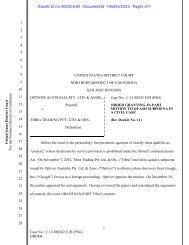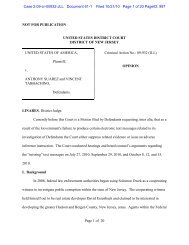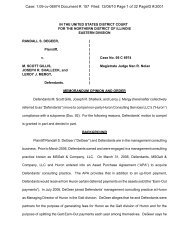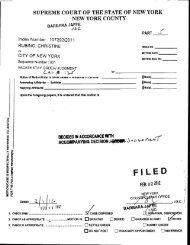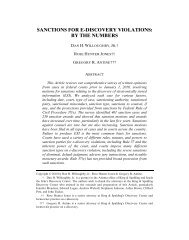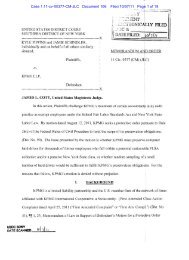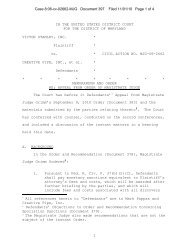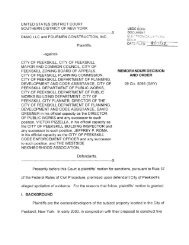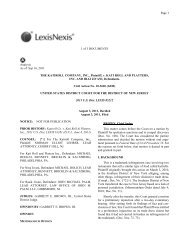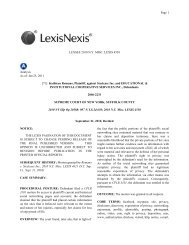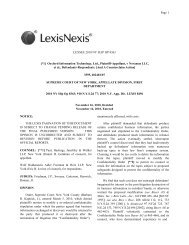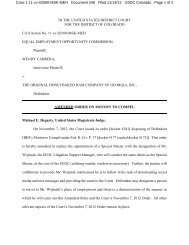Rimkus Consulting Group Inc. v. Cammarata - Ballard Spahr LLP
Rimkus Consulting Group Inc. v. Cammarata - Ballard Spahr LLP
Rimkus Consulting Group Inc. v. Cammarata - Ballard Spahr LLP
You also want an ePaper? Increase the reach of your titles
YUMPU automatically turns print PDFs into web optimized ePapers that Google loves.
Case 4:07-cv-00405 Document 450 Filed in TXSD on 02/19/10 Page 21 of 139<br />
involved and the prejudice that results. Such a sanction should be no harsher than necessary<br />
to respond to the need to punish or deter and to address the impact on discovery. 17<br />
“[T]he<br />
judge [imposing sanctions] should take pains neither to use an elephant gun to slay a mouse<br />
nor to wield a cardboard sword if a dragon looms. Whether deterrence or compensation is<br />
the goal, the punishment should be reasonably suited to the crime.” Anderson v. Beatrice<br />
Foods Co., 900 F.2d 388, 395 (1st Cir. 1990). A measure of the appropriateness of a<br />
sanction is whether it “restore[s] the prejudiced party to the same position he would have<br />
been in absent the wrongful destruction of evidence by the opposing party.” West v.<br />
Goodyear Tire & Rubber Co., 167 F.3d 776, 779 (2d Cir. 1999) (quotation omitted); see also<br />
Silvestri v. Gen. Motors Corp., 271 F.3d 583, 590 (4th Cir. 2001) (“[T]he applicable sanction<br />
should be molded to serve the prophylactic, punitive, and remedial rationales underlying the<br />
spoliation doctrine.” (quoting West, 167 F.3d at 779)).<br />
Extreme sanctions—dismissal or default—have been upheld when “the spoliator’s<br />
conduct was so egregious as to amount to a forfeiture of his claim” and “the effect of the<br />
spoliator’s conduct was so prejudicial that it substantially denied the defendant the ability to<br />
defend the claim.” Sampson v. City of Cambridge, Maryland, 251 F.R.D. 172, 180 (D. Md.<br />
2008) (quoting Silvestri, 271 F.3d at 593); see Leon v. IDX Sys. Corp., 464 F.3d 951, 959<br />
(9th Cir. 2006) (“The prejudice inquiry ‘looks to whether the [spoiling party’s] actions<br />
17 See FED. R. CIV. P. 37(e) (sanctions may not be imposed for the inability to produce electronically stored<br />
information lost because of the routine, good-faith operation of a party’s computer system); Schmid v.<br />
Milwaukee Elec. Tool Corp., 13 F.3d 76, 79 (3d Cir. 1994); Dillon v. Nissan Motor Co., Ltd., 986 F.2d 263,<br />
267 (8th Cir. 1993).<br />
21



